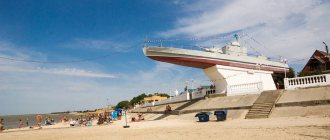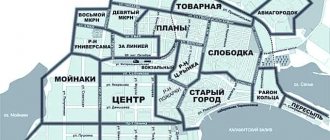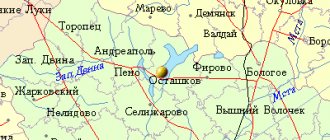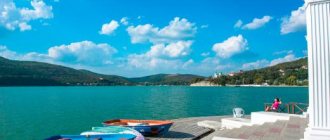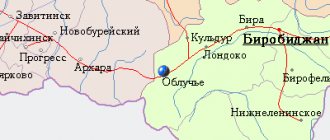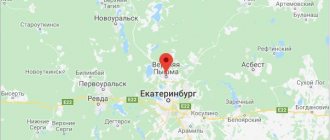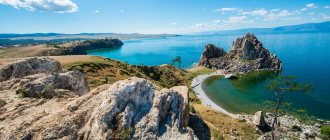This term has other meanings, see Babushkin.
| City Babushkin Coat of arms |
| A country | Russia, Russia |
| Subject of the federation | BuryatiaBuryatia |
| Municipal district | Kabansky |
| urban settlement | "Babushkinskoe" |
| Coordinates | 51°43′00″ n. w. 105°52′00″ E. long / 51.71667° north w. 105.86667° E. d. / 51.71667; 105.86667 (G) [www.openstreetmap.org/?mlat=51.71667&mlon=105.86667&zoom=11 (O)] (Z)Coordinates: 51°43′00″ N. w. 105°52′00″ E. long / 51.71667° north w. 105.86667° E. d. / 51.71667; 105.86667 (G) [www.openstreetmap.org/?mlat=51.71667&mlon=105.86667&zoom=11 (O)] (I) |
| Based | in 1760 |
| Former names | until 1892 — Mysovsky settlement until 1902 - |
| City with | 1902 |
| Center height | 470 |
| Climate type | sharply continental |
| Population | ↘4623[1] people (2016) |
| National composition | Russians, Buryats and others |
| Confessional composition | Orthodox, Buddhists and others |
| Names of residents | babushkinets, babushkinets[2] |
| Timezone | UTC+8 |
| Telephone code | +7 30138 |
| Postcode | 671230 |
| Vehicle code | 03 |
| OKATO code | [classif.spb.ru/classificators/view/okt.php?st=A&kr=1&kod=81224503000 81 224 503 000] |
| Babushkin Moscow |
| Ulan-Ude Kabansk Babushkin |
Audio, photo and video
on Wikimedia Commons
K: Settlements founded in 1760
Babushkin
(until 1941 -
Mysovsk
) - a city in the Kabansky district of the Republic of Buryatia. Administrative center of the urban settlement "Babushkinskoye". Population - 4623[1] people. (2016).
One of the five historical cities of Buryatia. In the city there is the Mysovaya railway station on the Trans-Siberian Railway.
Climate
Thanks to its location on the shores of Lake Baikal, winters are relatively mild here (compared to Irkutsk or Ulan-Ude). Temperatures in winter range on average from −5 °C to −25 °C. Summers are cool, with high rainfall. Average temperatures: +15 °C to +25 °C. Autumn is, on average, warmer than spring.
| Average daily air temperature and precipitation[3] | |||||||||||||
| Month | Jan | Feb | Mar | Apr | May | Jun | Jul | Aug | Sep | Oct | But I | Dec | Year |
| Average temperature, °C | −14,5 | −15,8 | −8,6 | −0,5 | 6,3 | 10,7 | 14,4 | 14,4 | 8,9 | 2,7 | −4,0 | −7,9 | 0,6 |
| Precipitation, mm | 19,2 | 10,5 | 13,9 | 23,5 | 42,9 | 79,1 | 108,9 | 101,6 | 67,6 | 33,4 | 32,9 | 37,7 | 576 |
Famous people
Rokossovsky and Mysovsk
Konstantin Konstantinovich Rokossovsky was treated in a hospital in Mysovsk . From the memoirs of K.K. Rokossovsky (military memoirs “A Soldier’s Duty”): “In June 1921, the Red Army finished off Baron Ungern on the border with Mongolia. At the village of Zhelturinskaya, the 35th Cavalry Regiment, which I commanded, attacked the Ungernov cavalry that had broken through our infantry. In this battle I was wounded for the second time, in the leg with a broken bone.” For his distinction in the battle on June 2, 1921 near the village of Zhelturinskaya, K. K. Rokossovsky was awarded the second Order of the Red Banner. When, at the end of July 1921, Mysovsk was under the threat of an attack by Ungern, the untreated 24-year-old Rokossovsky (medics, at his request, bandaged his sore leg to two sticks) formed a combined detachment of 700 fighters and set out to meet the enemy.
Story
The settlement of the Mysovsky Posolsky Monastery on the site of the current city was allegedly founded between 1760 and 1765. Here began the Udunga highway through Khamar-Daban, built by Kyakhta merchants to transport goods from China. They also built a pier on Lake Baikal. Along the Krugomorsky tract through Mysovaya convicts were sent to Nerchinsk and Akatuy.
In 1892, a postal station was founded near the Mysovsky settlement and the local merchants began to petition for the settlement to be given the status of a city.
In 1900, the Mysovaya railway station was founded. Before the construction of the Circum-Baikal Railway, the Mysovaya pier received ferries with trains from the western shore of Lake Baikal.
On May 31, 1902, by the highest command, the village at Mysovoy station received the status of a district-free city in the Trans-Baikal region and the official name - Mysovsk
[4].
During the Russian-Japanese War, the Smolensk Red Cross infirmary with 200 beds operated in the city[5].
During the revolution of 1905-1907, Mysovsk was one of the centers of the revolutionary movement in Transbaikalia. On January 18, 1906, six revolutionaries, including I.V. Babushkin, were shot here by the punitive forces of General Meller-Zakomelsky.
In January 1914, a congress of cooperators of western Transbaikalia was held in Verkhneudinsk, at which the Pribaikalsky Trade and Industrial Partnership of Cooperatives “Pribaikalsoyuz” was created. After this, cooperative consumer societies “Economy” arose in the cities of Troitskosavsk, Mysovsk, Barguzin[6].
In 1917, the Mysovsky Assumption Monastery for women was created from the Orthodox community[7].
In August 1918, the station and the city were captured by the White Czechs. During the Civil War, Mysovsk was occupied by the Americans, Japanese, Ungernovites, Semyonovites, and Kappelevites. On February 11, 1920, in Mysovsk, General S. N. Voitsekhovsky established by his order one of the highest awards of the White movement in eastern Russia - the badge “For the Great Siberian Campaign.”
Until 1927, the city was part of the Irkutsk district of the Irkutsk province. On June 6, 1925, the city was transformed into a workers' settlement. On March 15, 1927, Mysovsk became part of the Buryat-Mongolian Autonomous Soviet Socialist Republic, and from September of the same year - into the newly formed Kabansky district of the BM Autonomous Soviet Socialist Republic.
In 1931, the shipyard of the East Siberian Fishing Trust began operating in Mysovsk[8].
On January 18, 1941, by Decree of the Presidium of the Supreme Soviet of the RSFSR, Mysovsk again acquired the status of a city (already of republican subordination) and was renamed Babushkin
[9], in honor of the professional revolutionary I.V. Babushkin, who was shot at Mysovaya station in 1906.
In 1959, the city of Babushkin lost its status as a city of republican subordination.
On January 13, 1965, the city of Babushkin, the towns of Vydrino, Selenginsk, Kamensk and Tankhoi, as well as the Posolsky Village Council were transferred from the Pribaikalsky district to the Kabansky district[10].
Sights of Babushkino
Coastal lighthouse
A coastal lighthouse still stands on the outskirts of the cape in Babushkino . It was built in 1900 from cut sandstone and reinforced with concrete. The height of the lighthouse is 17 m, the diameter is about 10 m. A spiral staircase 15 meters high leads to the observation deck.
Icebreaker "Baikal"
The construction of the Circum-Baikal Railway, due to the terrain, was extremely difficult and lengthy, and at the beginning of 1895, at the proposal of the Minister of Railways, Prince M.I. Khilkov, the construction of a railway ferry across Lake Baikal began. In December 1895, a contract for the manufacture of an icebreaker ferry was signed with the English. Parts of the icebreaker were delivered to the village. Listvenichnoye, where, under the leadership of naval engineer V.A. Zablotsky, on January 15, 1898, its assembly began on a specially built slipway. On June 17, 1899, the icebreaker “Baikal” was launched, and on April 24, 1900 it made its first working voyage.
“Baikal” was considered the second icebreaker in the world in terms of its size (after the icebreaker “Ermak”). Its length was 88.5 m, width – 17.5 m, displacement – 4200 tons. The icebreaker’s crew consisted of 200 people. Passenger accommodations were designed for 300 passengers; 27 two-axle cars were placed on the 3 rail tracks of the ferry. Distance from the port of Baikal to the station. The ferry passed Mysovaya, 73 km long, in 4.5 hours.
"Baikal" was built from steel of a particularly strong design and was capable of breaking meter-long ice. However, the Baikal ice turned out to be stronger. So, on December 29, 1900, the icebreaker “Baikal” found itself in an ice jam near Mysovaya, its propelling mechanism failed, and the ship stopped. Thus, in winter, during especially cold times, when ferry crossing was impossible, it was necessary to build an ice crossing on horseback.
During the Civil War, the icebreaker "Baikal" became part of the Red Guard Baikal Flotilla. On August 16, 1918, “Baikal” was shot from cannon by the White Czechs, burned and sank at the station. Mysovaya. Subsequently, the icebreaker's hull was lifted and cut into scrap metal. But there are enthusiasts who believe that the remains of the icebreaker (the lower frame of the hull) are currently at the bottom of Lake Baikal.
Notes
- ↑ 123
www.gks.ru/free_doc/doc_2016/bul_dr/mun_obr2016.rar Population of the Russian Federation by municipalities as of January 1, 2021 - Gorodetskaya I. L., Levashov E. A.
[books.google.com/books?id=Do8dAQAAMAAJ&dq=%D0%91%D0%B0%D0%B1%D1%83%D1%88%D0%BA%D0 %B8%D0%BD Babushkin] // Russian names of residents: Dictionary-reference book. - M.: AST, 2003. - P. 37. - 363 p. — 5000 copies. — ISBN 5-17-016914-0. - [www.worldclimate.com/cgi-bin/grid.pl?gr=N51E105 World Climate]
- Correspondence // Eastern Review. No. 34, February 10, 1904, p.3.
- E.V. Pavlov
In the Far East in 1905: From observations during the war with Japan / Life surgeon E. Pavlov. — St. Petersburg: book printer. Schmidt, 1907. appendix p.56 - Basaev G. D., Khutashkeeva S. D.
Cooperative movement in Western Transbaikalia on the eve and during the First World War // Humanitarian vector. Series: History, political science. 2012. No. 2. P.105-109. - E. V. Drobotushenko
Economic activity of Orthodox monasteries of the Transbaikal diocese in the second half of the 19th - early 20th centuries // Humanitarian vector. Series: Pedagogy, psychology. 2008. No. 2. P.86-95. - V. Semenov
Strangers are operating at the shipyard // Buryat-Mongolskaya Pravda, No. 44 (5522), February 22, 1935, p.4 - Buryat-Mongolskaya Pravda, No. 18 (7251), January 22, 1941, p. 1.
- [burstat.gks.ru/wps/wcm/connect/rosstat_ts/burstat/resources/a866c400476c15d4bf74ff1e21662943/number+of population.xls Population of the Republic of Buryatia by district (error 50 people)]. Retrieved February 25, 2015. [www.webcitation.org/6WbgRIn32 Archived from the original on February 25, 2015].
- ↑ 1234567891011
[www.mojgorod.ru/r_burjatija/babushkin/ People's encyclopedia “My City”. Babushkin]. Retrieved October 12, 2013. [www.webcitation.org/6KJpszQ41 Archived from the original on October 12, 2013]. - [demoscope.ru/weekly/ssp/rus59_reg2.php All-Union Population Census of 1959. The size of the urban population of the RSFSR, its territorial units, urban settlements and urban areas by gender] (Russian). Demoscope Weekly. Retrieved September 25, 2013. [www.webcitation.org/6GDOghWC9 Archived from the original on April 28, 2013].
- [demoscope.ru/weekly/ssp/rus70_reg2.php All-Union Population Census of 1970 The size of the urban population of the RSFSR, its territorial units, urban settlements and urban areas by gender.] (Russian). Demoscope Weekly. Retrieved September 25, 2013. [www.webcitation.org/6GDOiMstp Archived from the original on April 28, 2013].
- [demoscope.ru/weekly/ssp/rus79_reg2.php All-Union Population Census of 1979 The size of the urban population of the RSFSR, its territorial units, urban settlements and urban areas by gender.] (Russian). Demoscope Weekly. Retrieved September 25, 2013. [www.webcitation.org/6GDOjhZ5L Archived from the original on April 28, 2013].
- [demoscope.ru/weekly/ssp/rus89_reg2.php All-Union Population Census of 1989. Urban population]. [www.webcitation.org/617x0o0Pa Archived from the original on August 22, 2011].
- [www.gks.ru/bgd/regl/B09_109/IssWWW.exe/Stg/d01/tabl-21-09.xls Number of permanent population of the Russian Federation by cities, urban-type settlements and districts as of January 1, 2009]. Retrieved January 2, 2014. [www.webcitation.org/6MJmu0z1u Archived from the original on January 2, 2014].
- [www.gks.ru/free_doc/new_site/perepis2010/itogi/tom1/pub-01-05.xls Results of the 2010 All-Russian Population Census. 5. Population of Russia, federal districts, constituent entities of the Russian Federation, districts, urban settlements, rural settlements - district centers and rural settlements with a population of 3 thousand people or more]. Retrieved November 14, 2013. [www.webcitation.org/6L7PRbEbU Archived from the original on November 14, 2013].
- ↑ 12
[burstat.gks.ru/wps/wcm/connect/rosstat_ts/burstat/resources/d537ed8043fb0d72ad80efd92111eac8/Population+on+1+January.xlsx Buryatia. Population as of January 1, 2011-2014]. Retrieved June 18, 2014. [www.webcitation.org6QQKedzoB/ Archived from the original on June 18, 2014]. - [www.gks.ru/free_doc/doc_2012/bul_dr/mun_obr2012.rar Population of the Russian Federation by municipalities. Table 35. Estimated resident population as of January 1, 2012]. Retrieved May 31, 2014. [www.webcitation.org/6PyOWbdMc Archived from the original on May 31, 2014].
- [www.gks.ru/free_doc/doc_2013/bul_dr/mun_obr2013.rar Population of the Russian Federation by municipalities as of January 1, 2013. - M.: Federal State Statistics Service Rosstat, 2013. - 528 p. (Table 33. Population of urban districts, municipal districts, urban and rural settlements, urban settlements, rural settlements)]. Retrieved November 16, 2013. [www.webcitation.org/6LAdCWSxH Archived from the original on November 16, 2013].
- [www.gks.ru/free_doc/doc_2015/bul_dr/mun_obr2015.rar Population of the Russian Federation by municipalities as of January 1, 2015]. Retrieved August 6, 2015. [www.webcitation.org/6aaNzOlFO Archived from the original on August 6, 2015].
- [www.gks.ru/free_doc/doc_2014/bul_dr/mun_obr2014.rar Population of the Russian Federation by municipalities as of January 1, 2014]. Retrieved August 2, 2014. [www.webcitation.org/6RWqP50QK Archived from the original on August 2, 2014].
- [www.museum.ru/M1201 Museum of I.V. Babushkin on museum.ru]
Excerpt characterizing Babushkin (Buryatia)
“Yes,” Pierre answered with his now familiar smile of gentle mockery. “They even tell me about such miracles as I have never seen in my dreams.” Marya Abramovna invited me to her place and kept telling me what had happened to me, or was about to happen. Stepan Stepanych also taught me how to tell things. In general, I noticed that it is very peaceful to be an interesting person (I am an interesting person now); they call me and they tell me. Natasha smiled and wanted to say something. “We were told,” Princess Marya interrupted her, “that you lost two million in Moscow.” Is this true? “And I became three times richer,” said Pierre. Pierre, despite the fact that his wife’s debts and the need for buildings changed his affairs, continued to say that he had become three times richer. “What I have undoubtedly won,” he said, “is freedom...” he began seriously; but decided against continuing, noticing that this was too selfish a subject of conversation. -Are you building? - Yes, Savelich orders. – Tell me, did you not know about the death of the Countess when you stayed in Moscow? - said Princess Marya and immediately blushed, noticing that by making this question after his words that he was free, she ascribed to his words a meaning that they, perhaps, did not have. “No,” answered Pierre, obviously not finding the interpretation that Princess Marya gave to his mention of her freedom awkward. “I learned this in Orel, and you can’t imagine how it struck me.” We were not exemplary spouses,” he said quickly, looking at Natasha and noticing in her face the curiosity about how he would respond to his wife. “But this death struck me terribly.” When two people quarrel, both are always to blame. And one’s own guilt suddenly becomes terribly heavy in front of a person who no longer exists. And then such death... without friends, without consolation. “I’m very, very sorry for her,” he finished and was pleased to notice the joyful approval on Natasha’s face. “Yes, here you are again, a bachelor and a groom,” said Princess Marya. Pierre suddenly blushed crimson and tried for a long time not to look at Natasha. When he decided to look at her, her face was cold, stern and even contemptuous, as it seemed to him. – But did you really see and talk with Napoleon, as we were told? - said Princess Marya. Pierre laughed. - Never, never. It always seems to everyone that being a prisoner means being a guest of Napoleon. Not only have I not seen him, but I have also not heard of him. I was in much worse company. Dinner ended, and Pierre, who at first refused to talk about his captivity, gradually became involved in this story. - But is it true that you stayed to kill Napoleon? – Natasha asked him, smiling slightly. “I guessed it when we met you at the Sukharev Tower; remember? Pierre admitted that this was the truth, and from this question, gradually guided by the questions of Princess Marya and especially Natasha, he became involved in a detailed story about his adventures. At first he spoke with that mocking, meek look that he now had at people and especially at himself; but then, when he came to the story of the horrors and suffering that he had seen, he, without noticing it, became carried away and began to speak with the restrained excitement of a person experiencing strong impressions in his memory. Princess Marya looked at Pierre and Natasha with a gentle smile. In this whole story she saw only Pierre and his kindness. Natasha, leaning on her arm, with a constantly changing expression on her face, along with the story, watched, without looking away for a minute, Pierre, apparently experiencing with him what he was telling. Not only her look, but the exclamations and short questions she made showed Pierre that from what he was telling, she understood exactly what he wanted to convey. It was clear that she understood not only what he was saying, but also what he would like and could not express in words. Pierre told about his episode with a child and a woman, for whose protection he was taken, in the following way: “It was a terrible sight, children were abandoned, some were on fire... In front of me they pulled out a child... women, from whom they pulled things off, tore out earrings... Pierre blushed and hesitated. “Then a patrol arrived, and all those who were not robbed, all the men were taken away. And me. – You probably don’t tell everything; “You must have done something…” Natasha said and paused, “good.” Pierre continued to talk further. When he talked about the execution, he wanted to avoid the terrible details; but Natasha demanded that he not miss anything. Pierre started to talk about Karataev (he had already gotten up from the table and was walking around, Natasha was watching him with her eyes) and stopped. - No, you cannot understand what I learned from this illiterate man - a fool. “No, no, speak up,” said Natasha. - Where is he? “He was killed almost in front of me.” - And Pierre began to tell the last time of their retreat, Karataev’s illness (his voice trembled incessantly) and his death. Pierre told his adventures as he had never told them to anyone before, as he had never recalled them to himself. He now saw, as it were, a new meaning in everything that he had experienced. Now, when he was telling all this to Natasha, he was experiencing that rare pleasure that women give when listening to a man - not smart women who, while listening, try to either remember what they are told in order to enrich their minds and, on occasion, retell it or adapt what is being told to your own and quickly communicate your clever speeches, developed in your small mental economy; but the pleasure that real women give, gifted with the ability to select and absorb into themselves all the best that exists in the manifestations of a man. Natasha, without knowing it herself, was all attention: she did not miss a word, a hesitation in her voice, a glance, a twitch of a facial muscle, or a gesture from Pierre. She caught the unspoken word on the fly and brought it directly into her open heart, guessing the secret meaning of all Pierre’s spiritual work. Princess Marya understood the story, sympathized with it, but now she saw something else that absorbed all her attention; she saw the possibility of love and happiness between Natasha and Pierre. And for the first time this thought came to her, filling her soul with joy. It was three o'clock in the morning. Waiters with sad and stern faces came to change the candles, but no one noticed them. Pierre finished his story. Natasha, with sparkling, animated eyes, continued to look persistently and attentively at Pierre, as if wanting to understand something else that he might not have expressed. Pierre, in bashful and happy embarrassment, occasionally glanced at her and thought of what to say now in order to shift the conversation to another subject. Princess Marya was silent. It didn’t occur to anyone that it was three o’clock in the morning and that it was time to sleep. “They say: misfortune, suffering,” said Pierre. - Yes, if they told me now, this minute: do you want to remain what you were before captivity, or go through all this first? For God's sake, once again captivity and horse meat. We think how we will be thrown out of our usual path, that everything is lost; and here something new and good is just beginning. As long as there is life, there is happiness. There is a lot, a lot ahead. “I’m telling you this,” he said, turning to Natasha. “Yes, yes,” she said, answering something completely different, “and I would like nothing more than to go through everything all over again.” Pierre looked at her carefully. “Yes, and nothing more,” Natasha confirmed. “It’s not true, it’s not true,” Pierre shouted. – It’s not my fault that I’m alive and want to live; and you too. Suddenly Natasha dropped her head into her hands and began to cry. - What are you doing, Natasha? - said Princess Marya. - Nothing, nothing. “She smiled through her tears at Pierre. - Goodbye, time to sleep. Pierre stood up and said goodbye. Princess Marya and Natasha, as always, met in the bedroom. They talked about what Pierre had told. Princess Marya did not speak her opinion about Pierre. Natasha didn't talk about him either. “Well, goodbye, Marie,” Natasha said. – You know, I’m often afraid that we don’t talk about him (Prince Andrei), as if we are afraid to humiliate our feelings and forget. Princess Marya sighed heavily and with this sigh acknowledged the truth of Natasha’s words; but in words she did not agree with her. - Is it possible to forget? - she said. “It felt so good to tell everything today; and hard, and painful, and good. “Very good,” said Natasha, “I’m sure he really loved him.” That's why I told him... nothing, what did I tell him? – suddenly blushing, she asked. - Pierre? Oh no! How wonderful he is,” said Princess Marya. “You know, Marie,” Natasha suddenly said with a playful smile that Princess Marya had not seen on her face for a long time. - He became somehow clean, smooth, fresh; definitely from the bathhouse, do you understand? - morally from the bathhouse. Is it true? “Yes,” said Princess Marya, “he won a lot.” - And a short frock coat, and cropped hair; definitely, well, definitely from the bathhouse... dad, it used to be... “I understand that he (Prince Andrei) did not love anyone as much as he did,” said Princess Marya. – Yes, and it’s special from him. They say that men are friends only when they are very special. It must be true. Is it true that he doesn't resemble him at all? - Yes, and wonderful. “Well, goodbye,” Natasha answered. And the same playful smile, as if forgotten, remained on her face for a long time. Pierre could not fall asleep for a long time that day; He walked back and forth around the room, now frowning, pondering something difficult, suddenly shrugging his shoulders and shuddering, now smiling happily. He thought about Prince Andrei, about Natasha, about their love, and was either jealous of her past, then reproached her, then forgave himself for it. It was already six o'clock in the morning, and he was still walking around the room. “Well, what can we do? If you can’t do without it! What to do! So, this is how it should be,” he said to himself and, hastily undressed, went to bed, happy and excited, but without doubts and indecisions. “We must, strange as it may be, no matter how impossible this happiness is, we must do everything in order to be husband and wife with her,” he said to himself. Pierre, a few days before, had set Friday as the day of his departure for St. Petersburg. When he woke up on Thursday, Savelich came to him for orders about packing his things for the road. “How about St. Petersburg? What is St. Petersburg? Who's in St. Petersburg? – he asked involuntarily, although to himself. “Yes, something like that a long, long time ago, even before this happened, I was planning to go to St. Petersburg for some reason,” he remembered. - From what? I'll go, maybe. How kind and attentive he is, how he remembers everything! - he thought, looking at Savelich’s old face. “And what a pleasant smile!” - he thought.

